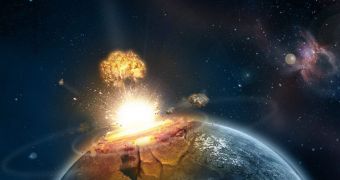According to investigators, humans will most definitely live in a future that will look different than today's world does, especially in terms of biodiversity.
Researchers say that, most likely, our children and their children will live in a world that will contain a lot less animal species. Experts explain that the disappearance of a single species can have a chain reaction-like effect in ecosystems.
In the past, extinction events have acted as reset buttons for the entire planet, grinding life here to an almost complete stop, and then starting over.
According to comprehensive studies of the fossil record, the effects of these events were both positive and negative, depending on how you look at them.
In this sense, we may be ushering in a new type of extinction event, some researchers believe, in which our actions – ranging from pollution and hunting to global warming – lead to the disappearance of massive numbers of animal species.
As more and more creatures go extinct, their absence has incredibly-profound influences on the ecosystems they left, and the main one is that they throw all other species off-balance.
Right now, after billions of years of evolution, life on Earth has become a self-organizing ecosystem, which is capable of keeping itself in check.
Our interferences are destroying this delicate balance, thus bringing a full-blown extinction event closer and closer, LiveScience reports.
Additionally, some believe that we may be putting an end to the Holocene Epoch, which lasted only 10,000 years, and ushering in the Anthropocene Epoch.
This new stage in the planet's history is marked by changes humans and their actions have instilled on the planet, hence the name.
Some of the effects which we could see more of include oceanic acidification, a rise on global temperatures and sea levels, increased levels of sediment erosion, and changes in most ecosystems.
“The main implication is that we're really rolling the dice. We don't know which groups will suffer the most, which groups will rebound the most quickly, or which ones will end up with higher or lower long-term equilibrium diversity levels,” says John Alroy.
He is a paleobiologist at the Macquarie University in Sydney, Australia.

 14 DAY TRIAL //
14 DAY TRIAL //